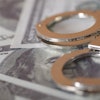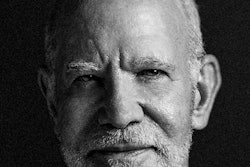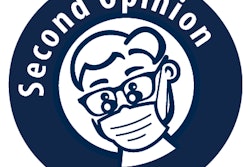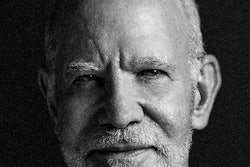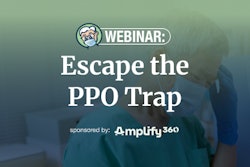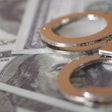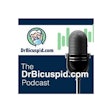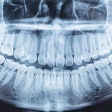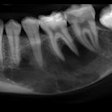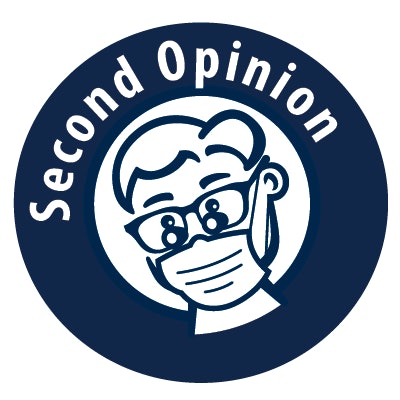
Anosognosia is a condition in which a person with a disability is unaware that he or she has a disability. People with anosognosia do not know that they don't know. They are unconscious, unaware, and disconnected from their disability. For them, their disability simply does not exist.
 Marc Cooper, DDS, MSD.
Marc Cooper, DDS, MSD.In our COVID-19 environment, many dentists have anosognosia. Their unrecognized disability makes them less capable as leaders, considerably less effective as senior executives, and far less mission- and values-driven.
The etiology of their disability resides in the unrecognized condition of "To Me." The "To Me" state is a result of experiencing a direct threat. The coronavirus phenomenon is happening to me. In the case of the coronavirus, the threats are to the dental practice, personal income, and their future. More subtlety, and much more damaging, the threats are to their identity and their ego.
In the condition of "To Me," dentists and senior executives are less tolerant and more easily upset. They are more shut down in their self-expression, more worried, more stressed, and more burned out. When dentists feel accosted by the impact of the virus, they feel they have no control and all they can do is react. The virus is doing it to them.
When dentists think it is being done to them, they have arrived at becoming a victim. Being a victim is the disability to which dentists are unconscious. They fail to grasp that they are operating out of victimhood.
The diagnosis: anosognosia. The disability: being a victim.
Being a victim
Being a victim comes with a victim consciousness. The victim consciousness does not allow the dentist to communicate successfully. Why? Because victims listen but do not hear. Their attention is squarely on themselves.
This victim consciousness does not infuse strength or confidence. The ability to lead is depleted because, as victims, they have made themselves weak and make themselves the center of attention. Leaders cannot lead effectively when they do not feel strong or when it is all about them.
Victim communications are often a bit whiny and full of complaints -- they are always "me" focused. The emotional states that are present most often are low-level anxiety and submerged anger. A victim speaking often comes across as strident or as continuously grumbling. "Someone is at fault. Someone should fix this. It's someone's responsibility that the virus is out of control! Who really knows?"
When you are a victim, your compassion, empathy, caring, and benevolence for others deteriorate. When your own survival feels at stake, you lose a good chunk of your humanity.
When you are a victim, scarcity beliefs and thoughts bubble up. "What if we get shut down again? What if I get infected? What happens if my cash runs out? What if staff members leave?" The pattern of being a victim is grounded on scarcity, where there is not enough, often leading to the conclusion that you yourself are not enough. This mentality is a nightstick to the knees of leadership.
The other legs of the victim triangle come along with being a victim. You can't be a victim without having a persecutor. Someone or something has to torment, oppress, and harass you -- and it's something or someone you can't do anything about. So, victims make the virus itself, or the government, or their professional organizations, or those "rip-off" vendors selling the personal protective equipment those persecutors. You can have more than one. You can have any combination.
Listening to people with a victim mindset, you can hear fault, blame, criticism, castigation, and rebuke. This language enshrines and further defines the persecutor. And the more this language is spoken, the more powerful it makes the persecutor (and the weaker the victim themselves) in their mind.
For a victim, entitlement replaces responsibility -- the belief that one is inherently deserving of privileges or special treatment. "I've paid my dues. I am a good person. I work hard. I contribute to my community. I pay a lot of taxes. I pay my professional dues. I deserve to be protected. I am a very needed healthcare provider." The beat goes on.
Victims look for rescuers because victims feel they can't fix it themselves. Victims lack the wherewithal, the chutzpah, the connections to respond effectively. Well, here's the truth -- the ADA, the U.S. Centers for Disease Control and Prevention, the World Health Organization, your dental societies, your professional organizations with the three- or four-word acronyms, your vendors, your suppliers, your advisers, your dental service organizations, the U.S. government -- they are not coming to the rescue of dental practices. Dentists must realize that the "cavalry is not coming."
Marc Cooper, DDS, MSD, is the president of MBC Consultants. Dr. Cooper has worked throughout the healthcare industry during his career, with the majority of his clients being in the dental industry. His current focus is coaching leaders, dentists, and senior executives on how to effectively navigate their organizations and lead their respective teams during this period of tremendous uncertainty.
The comments and observations expressed herein do not necessarily reflect the opinions of DrBicuspid.com, nor should they be construed as an endorsement or admonishment of any particular idea, vendor, or organization.
